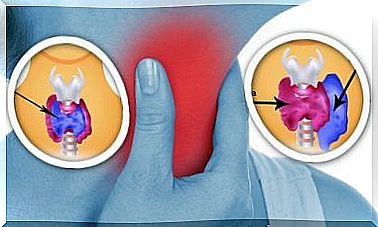Magnesium, An Important Mineral

Like calcium and phosphorus, magnesium is an important mineral. It helps to balance the energy of your neurons. How does it achieve that balance? Easy. This essential chemical element not only acts as an energy source, but also to calm the body.
Magnesium is also key to our psychological well-being. In fact, those who deal with a lot of stress often lack this element. It occurs in products such as:
- most green leafy vegetables
- vegetables
- cacao
- almonds
- soy flour
- peanuts
- hazelnut
- walnuts
It is important to emphasize that, despite its excellent properties, this mineral is not as popular and well-known as other nutrients. Today we would like to change that and explain what makes magnesium an important mineral.
Magnesium, an important mineral in the body
About 50% of the magnesium in our body is in our bones and tissues. Magnesium aids in the proper functioning of the nervous, muscular and cardiovascular systems. As a result, it is vital for more than 300 chemical processes in the body.
Features include the following:
- Freeing up energy
- Hormone production
- Strengthening the bones
- Pressure regulation in the blood vessels
- Blood Glucose Control
- Maintenance of the immune system
- Helps with protein formation
- Contraction and relaxation of the muscles (including the heart)
The benefits of magnesium, an important mineral

It’s detoxifying
Magnesium has detoxifying functions. This means that damage from heavy metals and toxic substances is generally prevented. Also, magnesium is fundamental for the synthesis of glutathione. You may not believe it, but it contains one of the most important antioxidants, as it protects cells from damage.
Reduces fatigue

Your body uses magnesium to release energy. Basically it helps to provide cellular energy. As a result, fatigue with a deficiency of this mineral is usually a common symptom.
Soothes and relaxes
Magnesium acts as a sedative, helping to relieve anxiety. This is because it plays a role in the production of serotonin.
Improves rest

Magnesium provides a general sense of well-being. This mineral regulates our circadian rhythm or our biological clock. By doing this, it fights insomnia and keeps our nerves in check.
Helps relieve muscle soreness
In addition, magnesium is responsible for the proper muscle contraction and relaxation of every muscle group of our body, including the heart. It also stops cramps and pain in the muscles. For that reason, athletes tend to pay special attention to their magnesium levels.
Improves the health of your bones

Magnesium is one of the most important minerals for our bone health. This has to do with its influence on the activity of the osteoblasts and osteoclasts. In addition , it also promotes the maintenance of the correct bone density.
This means that it is an excellent aid in the fight against osteoporosis and in its prevention. Magnesium also helps in balancing the amount of vitamin D in the blood.
How do I know if I have a magnesium deficiency?
You may not be getting enough of this mineral. This can be due to, among other things:
- infections
- damage caused by radiation treatments
- intolerance to dairy
- celiac disease
- Crohn’s disease
However, you should also consider other factors such as age, health status, weight, etc. If someone has a magnesium deficiency, they generally suffer from symptoms such as:
- Fatigue
- Insomnia
- trembling muscles
- Raised blood pressure
- Difficulty concentrating
- Abnormal calcium or potassium levels
- Weakness or lack of energy
- Nervousness (and anxiety in people with anxiety disorders, among others)
If you often experience these symptoms, we recommend that you talk to your doctor so that you can seek advice. Only he/she can tell you what the problem is and the best way to treat it.









